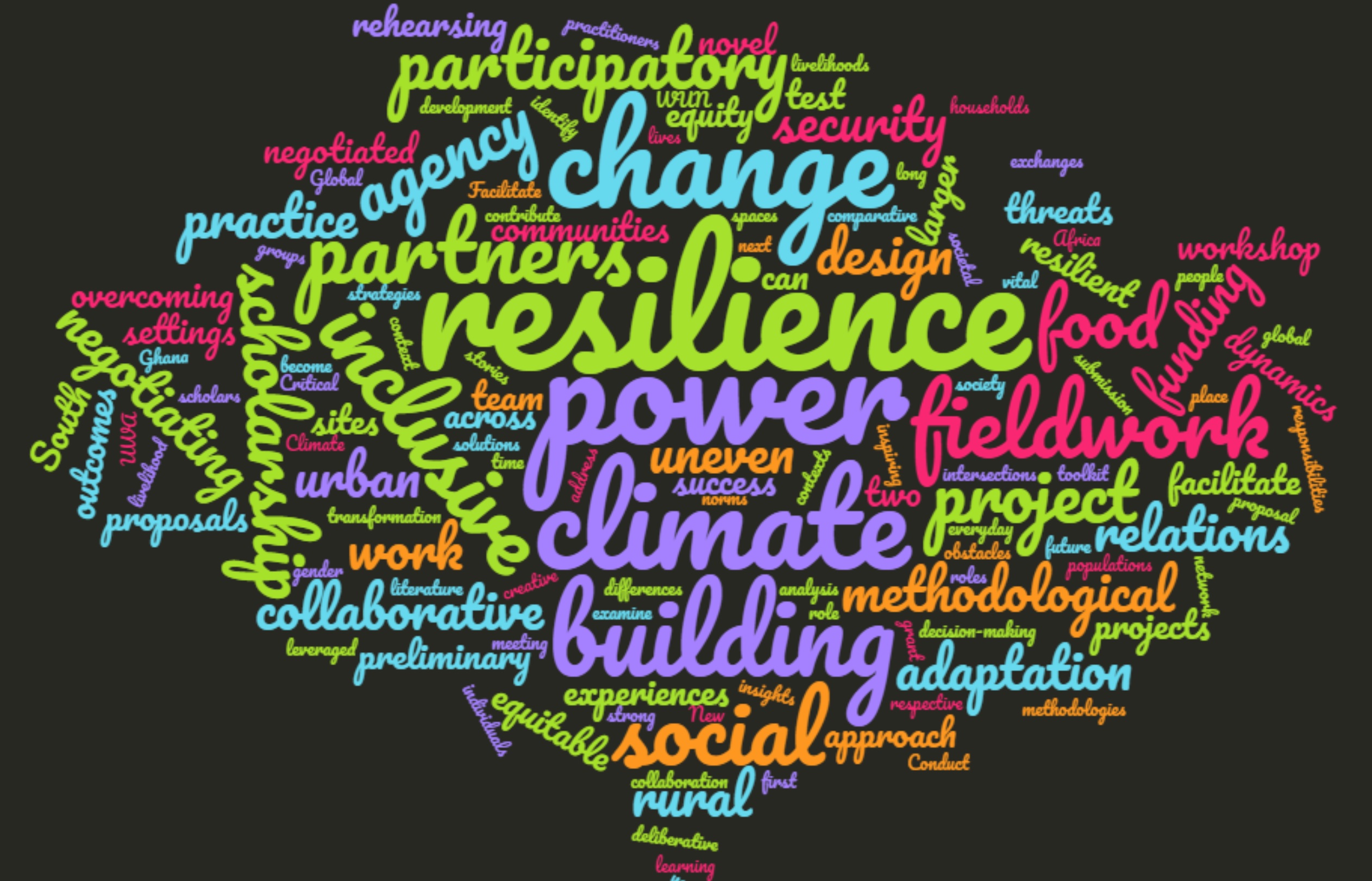
Climate change is now recognised as a global emergency. All societies will have to take urgent action to adapt and build resilience if they want to avoid unprecedented loss of lives and livelihoods. However, building or enhancing resilience is more difficult than it may appear. Critical scholarship highlights the roles of power, social difference, and agency in either strengthening or inhibiting people’s resilience to climate change. This means that the ways individuals, households, and communities share power in decision making around food and livelihood security determines which adaptation strategies are possible and for whom. New research leaves no doubt that limits to adaptation already exist.
We adopt the concept of ‘negotiated resilience’ to examine resilience as a complex process that requires negotiation between different people with diverse needs, interests, and aspirations. Specific norms regarding gender or age or marital status intersect to define social relations and hierarchies. They, in turn, influence who has a say in decision-making processes, in urban and rural communities in the Global South and Global North. Recent research illustrates how agency is negotiated in practice, including in the context of climate change. Such deliberations are vital for overcoming inequitable power dynamics, also in participatory interventions.
What remains unanswered is how these deliberative spaces can be anchored more effectively in the day-to-day lived experiences of struggling groups so that they last. Our research advances critical and engaged scholarship at the intersections of gender, class, race, ethnicity, and climate change. We propose to design and test an innovative and inclusive methodological approach to practice negotiating and renegotiating resilience in rural and urban settings. The research will span geographic and cultural contexts, with a main focus on households and communities.
Drawing upon experiences from Ghana, Nepal, Zimbabwe, Tanzania, South Africa, Cuba, Brazil, Australia, the UK, Indonesia, Thailand, New Zealand, and Oceania, we are acutely aware of the uneven power dynamics at work within and across these various contexts. At the same time, we are ideally positioned to prefigure the next scholarly wave on resilience building, and to contribute to fair societal transformation.
Selected outcomes
Impacts for scholarship:
- Cutting-edge contributions to critical and engaged scholarship on the politics of adaptation, transformation, and resilience, and innovative methodological tools to nurture resilience in action rather than measuring, mapping, and modelling it;
- Invigorating collaboration and commitment to justice and hope in the climate crisis, through productive co-design between high-profile scholars, junior researchers, grassroots mavericks, and climate policy negotiators;
- High-impact publications to feed into the IPCC 6th Assessment Report.
Impacts for society and policy:
- Enhanced resilience among disadvantaged urban and rural citizens, and agency to pursue desirable adaptation pathways;
- A flexible yet inclusive toolset to negotiate decision making in everyday lives;
- Relation building through co-produced knowledge and mutual learning between scholars and practitioners, community leaders, and policy makers, including powerful and marginalised stakeholders;
- Science-based input on resilience into our respective national climate change policies.
Benefits to WUN:
- Enhancing the visibility of WUN in the climate change solution space that showcases how to work with uneven power (rather than avoiding it) to make possible social and just transformations;
- Working creatively with the WUN Priority Areas to demonstrate the intrinsic links between Responses to Climate Change and Understanding Cultures and the value of social scientists as skilled mediators;
- Expanding WUN member collaborations, including new relationships between partner scholars and practitioners to further boost the WUN Global Africa Group;
- Timely deliberations with across partner institutions to move WUN debates toward climate justice.
